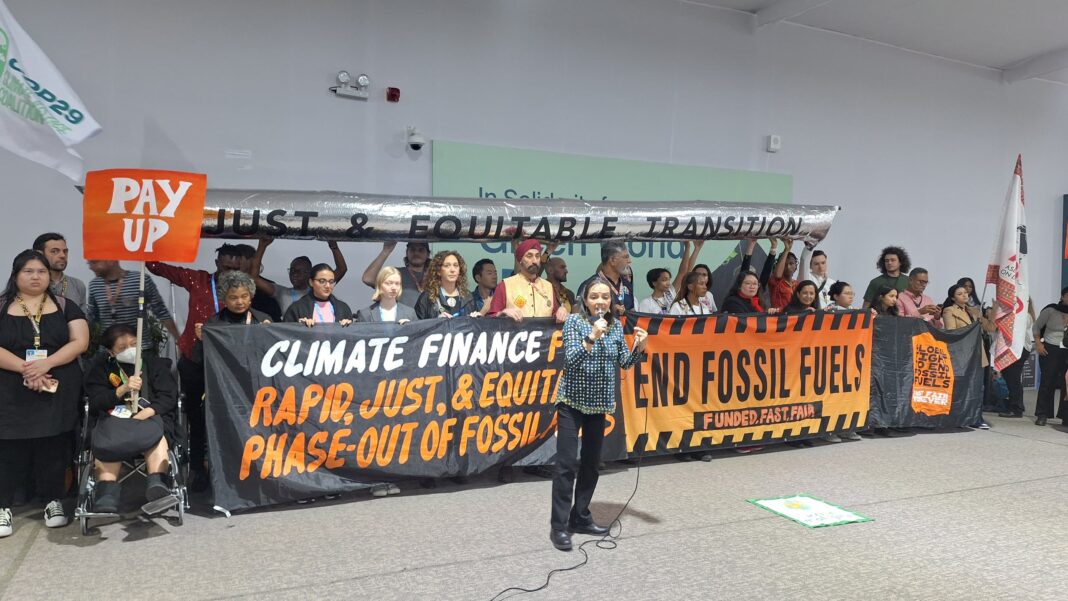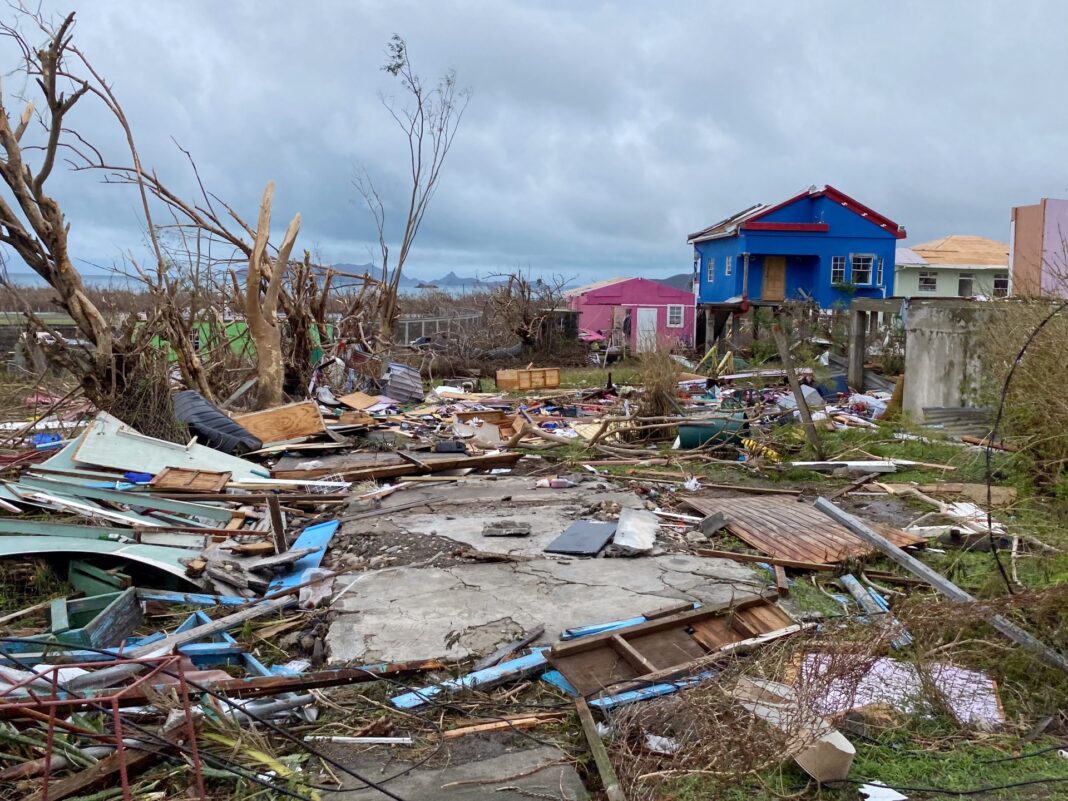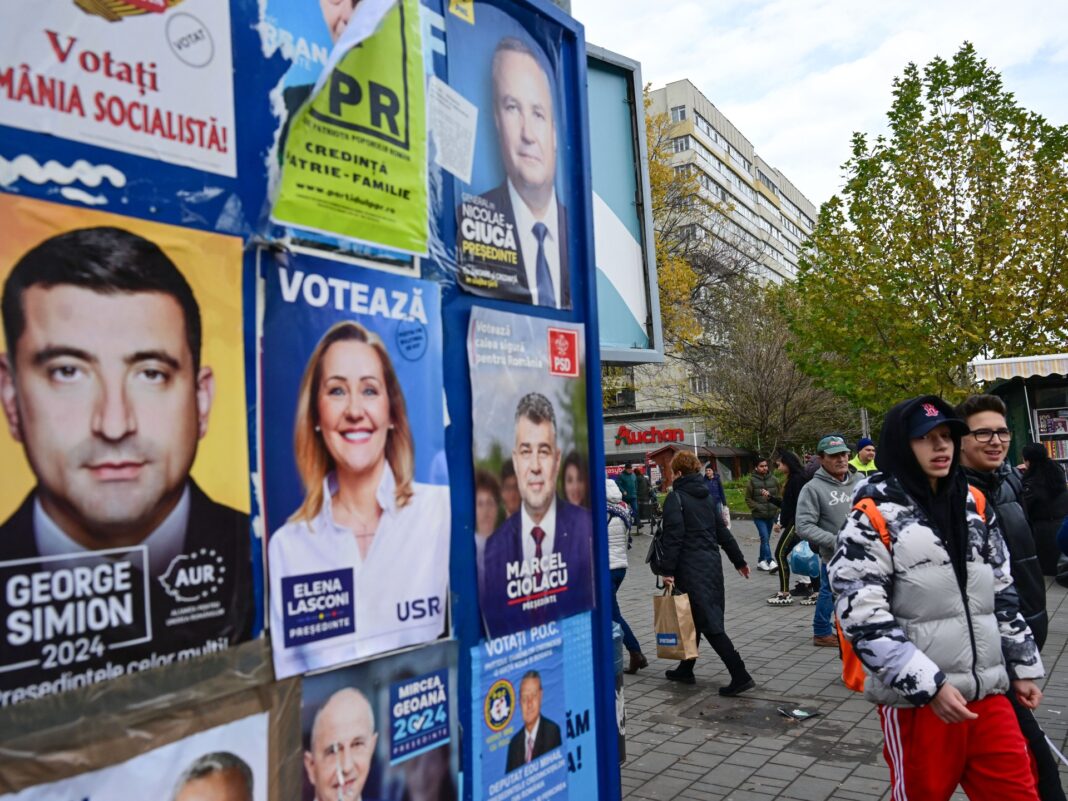The UN Climate Change Conference (COP29) in Baku, Azerbaijan closed on Saturday with a new finance goal: to triple public finance to developing countries, from the previous goal of USD 100 billion annually, to USD 300 billion annually by 2035.
Dubbed the ‘finance COP’, COP29’s outcome was heavily criticized for failing to deliver to the Global South. State and non-state stakeholders had been calling for not less than USD 1 trillion annually from wealthy and historically polluting countries, in the form of grants.
“The outcomes of COP29 are a mixed bag for the Middle East and North Africa (MENA). The new climate finance goal of USD 300 billion by 2035 is deeply insufficient to address the urgent climate adaptation and mitigation needs, as well as for responding to loss and damage in a region already grappling with rising temperatures, water scarcity, and desertification,” Political Campaign lead at Greenpeace MENA Hanen Keskes told Egyptian Streets.
“Without a commitment by developed countries to providing grant-based public finance rather than loans, the burden will disproportionately fall on developing countries, including those in MENA, which are among the most vulnerable to climate change while not having contributed historically to emissions,” Keskes continued.
The New Collective Quantified on Climate Finance (NCQG) of COP29 replaces the finance goal reached at COP15 in Copenhagen, where developed countries pledged to mobilize USD 100 billion per year by 2020 to address the needs of developing countries for shifting to clean energy and adapting to extreme weather and rising seas. The goal was met two years later in 2022.
“Rich countries have promised to ‘mobilize’ some funds in the future, rather than provide them now. The cheque is in the mail. But lives and livelihoods in vulnerable countries are being lost now,” Mohamed Adow, Director of climate and energy think tank Power Shift Africa, said in a statement. He added that “Not only did the global north impose a low-ball finance figure, it comes into force 11 years from now. This deal is too little, too late.”
Fadhel Kaboub, member of the Independent Expert Group on Just Transition and Development, agrees. “What the Global North is offering is not just a joke, it is an insult to all the delegations present at COP29, and symbolizes how unserious they are about the climate crisis…The U.S. and the rest of the industrialized world can surely afford more than that to pay for the climate crisis they created,” Kaboub said.
On day one of COP29, countries also agreed on standards for how carbon markets will operate under Article 6 of the Paris Agreement, making country-to-country trading and a carbon crediting mechanism fully operational, after almost a decade worth of COP negotiations.
Article 6.2 regulates bilateral carbon trading between countries, while Article 6.4 creates a global crediting mechanism for countries to sell emissions reductions.
COP29 President Mukhtar Babayev celebrated the early approval, saying the UN carbon market “will be a game-changing tool to direct resources to the developing world”.
However, critics have warned that the agreement on Article 6 was rushed through without following proper process.
“The carbon market mechanism under Article 6 offers little promise for real climate action. Instead of holding polluters accountable, it enables them to continue business as usual while offsetting emissions with questionable integrity. For MENA, this means continued exposure to climate impacts while the global fossil fuel industry escapes meaningful accountability,” Keskes explained.
A highly debated mechanism, the carbon market system allows countries to buy credits for removing or avoiding planet-heating pollution in other parts of the world, such as by planting trees or saving rainforests. This is counted toward their own emissions targets. The mechanism is underpinned by mandatory checks for projects against strong environmental and human rights protections. It also allows anyone affected by a project to appeal a decision or file a complaint.https://unfccc.int/news/un-body-adopts-historic-human-rights-protections-for-carbon-market-mechanism
The COP29 approved mechanism enables rich polluters “to cheat their way out of actual emission reductions through the use of dubious pollution permit markets. The carbon market rules will allow the richest to continue polluting, placing at risk the 1.5C target, while shifting the burden to developing countries,” Adow stated.
“This COP has been a disaster for the developing world. It’s a betrayal of both people and [the] planet, by wealthy countries who claim to take climate change seriously,” said Adow.
UN Climate Chief Simon Stiell acknowledged that the final agreement of COP29 did not meet all Parties’ expectations, and substantially more work is still needed next year on several crucial issues.
“No country got everything they wanted, and we leave Baku with a mountain of work to do,” said Stiell.
Countries’ Nationally Determined Contributions (NDCs), are due at COP30, set to take place in Belem, Brazil. The new national climate plans must cover all greenhouse gasses and all sectors, to keep the 1.5°C warming limit within reach.


